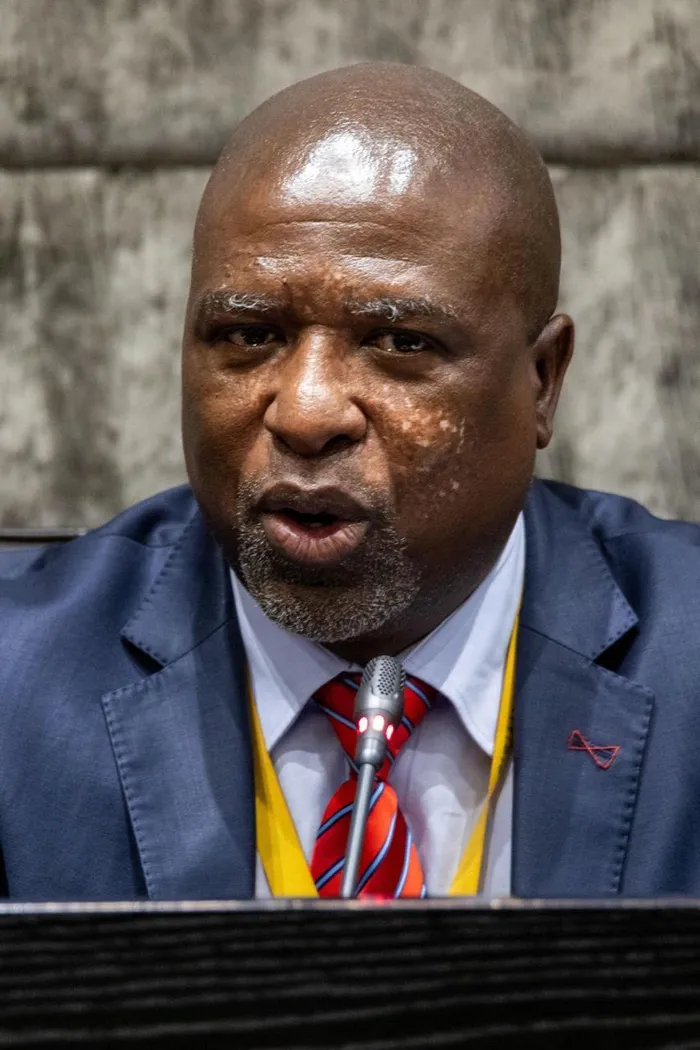Mkhwanazi inquiry chairperson exemplifies what true leadership means

Molapi Soviet Lekganyane, chairperson of the Ad Hoc Committee established to investigate allegations made by Lieutenant General Nhlanhla Mkhwanazi, stands head and shoulders above the rest, says the writer.
Image: Parliament of SA
IN SOUTH Africa, we have a habit of mistaking noise for leadership. We cheer the loud, the flashy, the camera-friendly political performers whose primary skill is spectacle.
But too often, the people quietly getting the job done, the true custodians of governance, go unnoticed. The recent, highly charged sessions of the Ad Hoc Committee established to investigate allegations made by Lieutenant General Nhlanhla Mkhwanazi offer a powerful, undeniable reminder of this truth, and one figure stood head and shoulders above the rest: Molapi Soviet Lekganyane, the chairperson.
Lekganyane doesn’t perform. He doesn’t crave applause. He doesn’t need headlines. And in a political landscape saturated with ego, that is exactly why he is remarkable.
While the committee sessions were a crucible of political tension, featuring high-profile figures like Julius Malema and dealing with explosive corruption allegations against the South African Police Service (SAPS), Lekganyane demonstrated that true leadership is quiet, deliberate, and results driven.
His leadership is a masterclass in procedural integrity, a stark contrast to the political theatre that often dominates Parliament.
Patience is his first defining quality. Committee sessions are long, tense, and often descend into procedural chaos. Yet, Lekganyane listens carefully, allows all voices from the most aggressive political grandstanders to the most evasive witnesses to be heard, and probes for clarity.
His patience is not indecision; it is a strategic commitment to informed, fair, and inclusive decision-making, ensuring that the committee’s findings will be legally and morally unassailable.
Clarity of vision is his second hallmark. Amid the procedural skirmishes and political posturing, he keeps discussions laser-focused on the committee’s mission, strengthening governance and accountability within the SAPS.
When witnesses offered "unsatisfactory testimony," Lekganyane did not hesitate to suspend proceedings and demand better evidence, transforming potential deadlocks into productive, albeit difficult, dialogue.
He understands, as he once powerfully stated, that "South Africans will not eat the manifesto of any political party." They need tangible results.
Humility is his third. In a political environment where authority often masks ego, Lekganyane exemplifies the opposite, a commanding presence rooted in integrity and service, not recognition. He leads because the role demands responsibility to the nation, not because it offers fame or applause. His authority is earned through competence, not demanded through volume.
Decisiveness balanced with fairness is his fourth strength. He can make tough calls when required such as recalling a key witness or ruling against a point of order, but every decision is transparent, reasoned, and just.
This balance builds trust, not just among the fractious committee members, but among the public watching, scrutinising, and judging every move in this critical investigation.
And finally, resilience. South Africa’s governance environment is turbulent. Political pressure, public scrutiny, and procedural obstacles can derail even the best-intentioned leaders. Lekganyane remains calm and steady, mediating disputes, finding common ground, and keeping the committee on course toward its mandate. These subtle interventions rarely make headlines, but they are the backbone of effective governance.
Lekganyane’s example is a profound lesson for the nation. We have spent too long celebrating leaders who seek applause, yet we overlook those who quietly ensure systems work, processes are followed, and justice is served. Real leadership is not about being seen; it is about competence, commitment, and integrity.
If we are serious about progress, accountability, and effective governance, it’s time to shift our gaze. The loudest, most visible leaders are not always the most consequential.
The leaders who quietly guide, patiently mediate, and consistently deliver results like Molapi Soviet Lekganyane are the ones our country cannot afford to ignore. They are the true architects of a functional democracy, and their work deserves not just recognition, but replication.
Qwesha is a trade finance consultant with expertise in global commerce and risk management and regularly contributes to a number of publications.